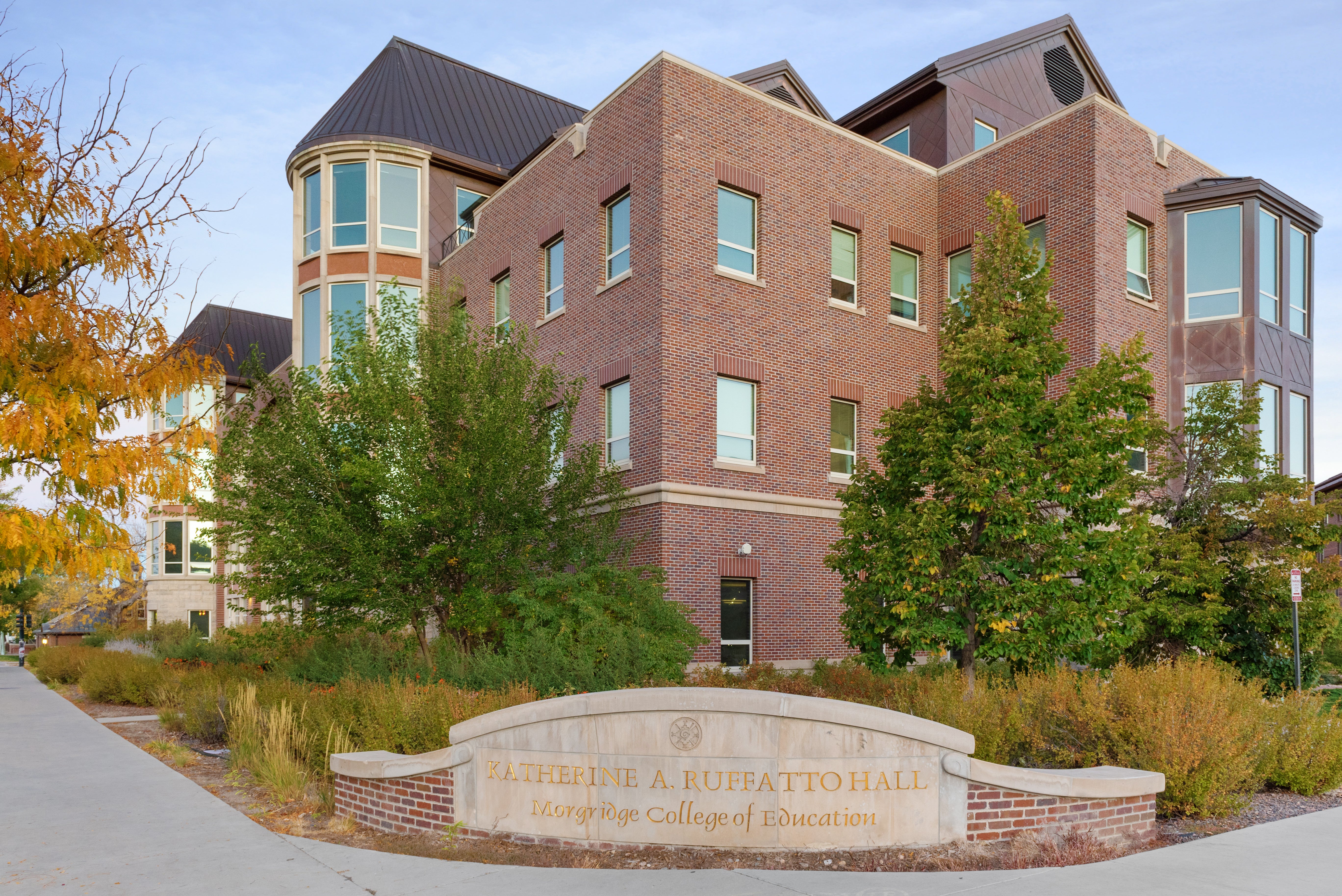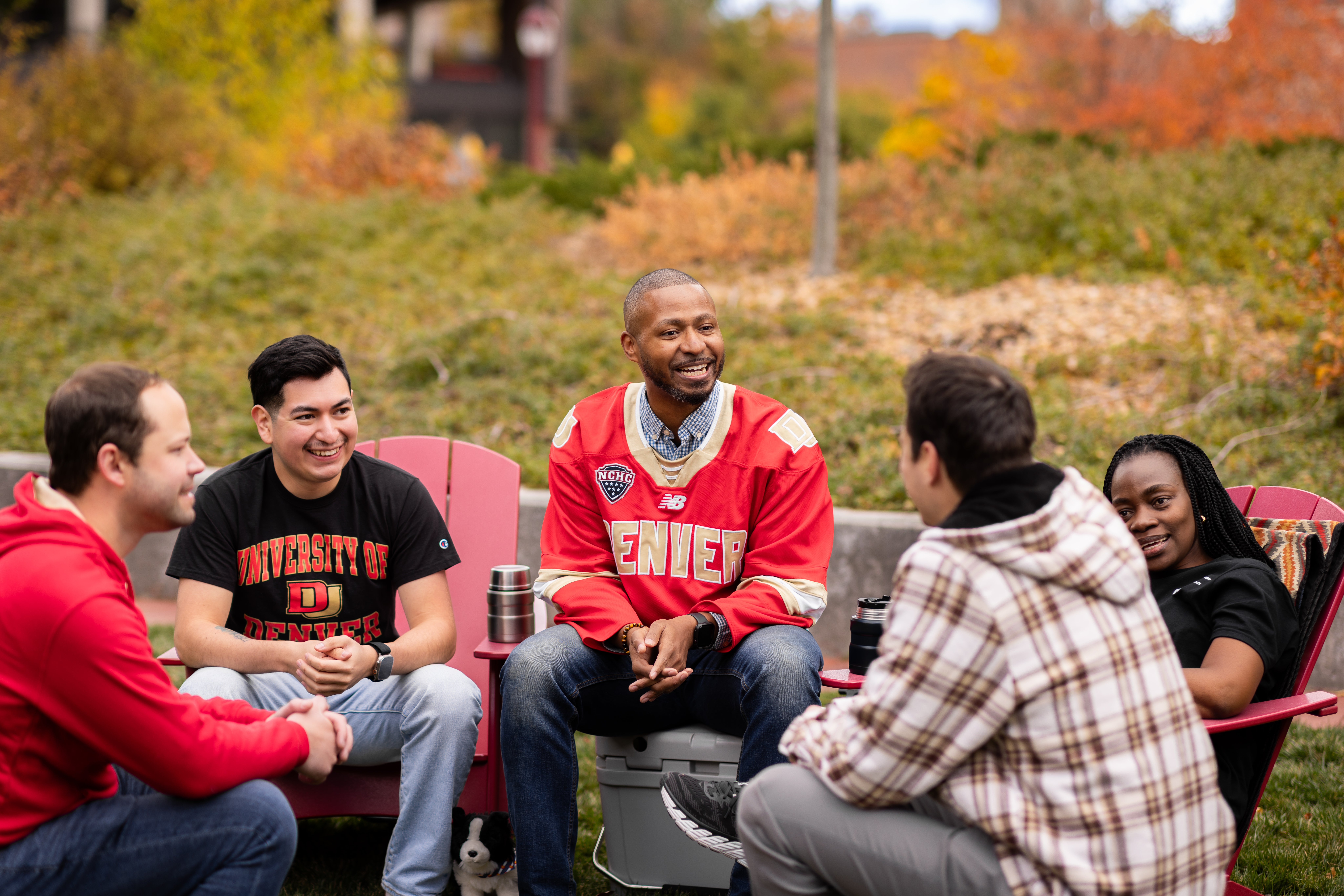Build your career by joining the ALA-accredited Library and Information Science (LIS) program at the University of Denver, where we bridge traditional librarianship with cutting-edge information technology and data services. Our program offers a wealth of internship opportunities and flexible learning modalities. Students can choose from flexible online courses, or in-person courses that are distinguished by face-to-face instruction and small class sizes. Located in the heart of the Rocky Mountain region, we focus on essential career pathways in public and academic libraries, archives and records management, data management, information technology, digital libraries and other information settings.
Social justice is a core value in our program—our commitment to diversity, equity, inclusion and accessibility is reflected in every aspect of our culture, from the curriculum and class discussions to faculty research and student projects. Our faculty are seasoned experts and active researchers dedicated to providing education that balances practical skills with deep theoretical insights. With several active student chapters of professional organizations that organize both social and professional development events, our program cultivates a network that values the transformative power of information and community service. Join us and become a part of this vibrant community.
Start Dates: Fall
Curriculum: 58 Credit Hours for MLIS; 53 Credit Hours for MLIS with a concentration in Research Data Management
Program Length: 21 Months full-time; 24-36 Months part-time
88% Percent of students who find the coursework relevant to their expected careers 2023 student satisfaction survey
87% Percent of graduates who find professional careers in library and archives settings 2023 Library Journal Placement Survey
100% Percentage of admitted students who receive some form of tuition assistance from the Morgridge College of Education
Master of Library and Information Science
How our curriculum prepares you for your career

Choose from a wide selection of coursework
The program offers you a wide range of courses to prepare you for various professional career pathways.

Take special topic courses on the latest trends
In response to the dynamic nature of the field and societal needs, you will find special topic courses on artificial intelligence, book banning, serving diverse communities and global LIS.

Gain hands-on experience from internships
For your culminating internship, you will select libraries, archives, or museum sites relevant to your professional interests. You may also participate in building digital archives for local communities in Colorado, such as the Park County Digital Archive and the Evergreen Mountain Area Historical Society Photographic Collection.

Gain practical experience
You will gain valuable practical experience through experiential learning, a variety of internships and community-based projects.
Have a voice in the field of information science
Under faculty direction, you will have opportunities to publish articles and book chapters and present at conferences.
Request for Information
Application Information
Research Data Management Concentration
If you choose to pursue the Research Data Management concentration , you will be prepared to handle complex data challenges, making you an asset in academic, corporate, research and public sector environments where data-driven decision-making is critical.
You'll explore data services encompassing the entire data lifecycle. This includes the collection, analysis, management, visualization and reporting of data. The curriculum features specialized courses tailored to equip you with practical skills and theoretical knowledge essential for managing and interpreting data effectively.
With the Library and Information Science (LIS) programs, you'll engage with courses such as Data Visualization, Data Curation, Scripting for Large Databases, Database Management Systems and Scholarly Communications. Additionally, the Research Methods and Statistics (RMS) component includes courses that cover Introduction to Statistics, Quantitative Research Design, Survey Design and Analysis, and Introduction to Qualitative Research.
Concentration Requirements
- LIS 4210 - Data Visualization
- LIS 4220 - Data Curation
- LIS 4135 - Scholarly Communication
- LIS 4230 - Database Management Systems
- LIS 4235 - Scripting for Large Databases
- RMS 4910 - Introductory Statistics
- RMS 4930 - Quantitative Research Design
- RMS 4931 - Survey and Design Analysis
- RMS 4941 - Introduction to Qualitative Research
Elective Requirements - 5 Credit Hours
Academic Libraries Concentration
The Academic Libraries concentration provides an area of emphasis within the 58-credit MLIS degree for students interested in pursuing a career in academic librarianship. The concentration prepares future academic librarians for various roles, from providing instructional and research support to faculty and students to managing institutional repositories. At many institutions of higher education, academic librarians in tenure-track positions are expected to conduct research, present at conferences, and publish in peer-reviewed journals. The proposed concentration provides the essential skills and knowledge for the academic library professional roles and prepares future researcher-practitioners for conducting research and evidence-based library practice.
With the Library and Information Science (LIS) program, you will engage with courses such as Academic Libraries, Scholarly Communication, and Info Literacy Instruction. In addition to the 22 credits in the core, the concentration requires 25 credits in coursework relevant to academic libraries and research training. Students are required to take a 4-credit course in research methods, RMS 4910 Introductory Statistics or RMS 4941 Introduction to Qualitative Research, and a 3-credit course on research in LIS. The courses are part of the LIS curriculum and are primarily taught by the core faculty.
Concentration requirements:
- LIS 4060 Reference, 3 credits
- LIS 4135 Scholarly Communication, 3 credits
- LIS 4220 Data Curation, 3 credits
- LIS 4321 Collection Management, 3 credits
- LIS 4330 Info Literacy Instruction, 3 credits
- LIS 4702 Academic Libraries, 3 credits
- LIS 4900 Library and Information Science Research, 3 credits
- RMS 4910 Introductory Statistics or RMS 4941 Introduction to Qualitative Research, 4 credits
Distribution of credits in the Academic Libraries Concentration:
LIS Core: 22 credits
Required courses in the concentration: 25 credits
Elective courses: 11 credits
Total credit hours: 58
- Academic Librarian
- Adult Services Supervisor
- Archivist
- Associate Professor and Teaching and Learning Librarian
- Children Services Librarian
- Content Strategist and Librarian
- Digital Archivist
- Digital Collection Librarian
- Digital Initiatives and OER Librarian
- Education Informationist
- Head of Research Services
- Head of Technical Services
- Kids and Families Librarian
- Metadata Librarian
- Reference Librarian
- Research Data Curation and Digital Archives Administrator
- Scholarly Communications Librarian
- Senior UX Designer
- Special Collections Librarian
- Teen Librarian
- UX Design + Content Strategy Coach
- UX/UI Designer and Researcher
- Web Applications Developer
- Young Adult Services Librarian
LIS Signature Stories
The LIS Signature Stories series features video interviews with LIS graduates who work in different professional areas.
Students and faculty participating in a community project with Park County Local History Archive are featured in the video below.
Notable MLIS Alumni
Laurier Cress (MLIS ’21)
UX Designer/Researcher at Harvard University

Get Started on Your MLIS Degree
Build your Library and Information Science career with an MLIS from the University of Denver’s Morgridge College of Education






